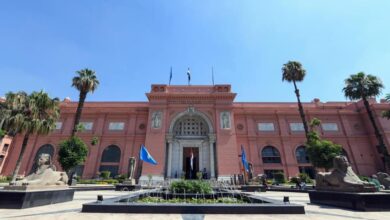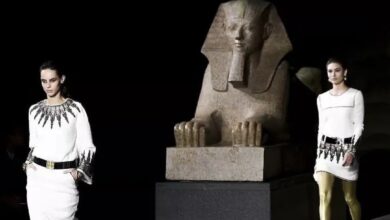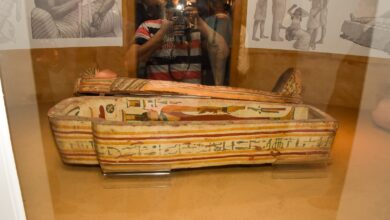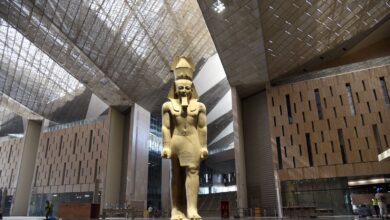The recent theft of Van Gogh's famous painting, Poppy Flowers, from the Mohamed Mahmoud Khalil Museum has raised critical questions about the status of museums in Egypt. Many important museums have been established during the past few years, including the Nubian, al-Arish and Bani Suef museums. Despite this recent flourishing, a serious revision of our national museum policies is in order.
In this vein, one of our first priorities should be devoting more attention to the study of museumology in Egyptian universities. At Cairo University, for instance, museumology and excavations is a secondary subject taught in a single term, while elsewhere it is treated as a normal subject. Museumology, as a field of study, lacks institutional autonomy. Attempts to establish a museumology center at the Faculty of Archaeology recently failed and, as a result, museumology is broken down into a number of specialties divided between the faculties of Archeology, Fine Arts, and Applied Arts.
It's high time that the Supreme Council of Antiquities establish a museumology center that would serve as a foundation for training Egyptians, Arabs and Africans in the field, especially since Egypt already has experience in certain museum specialties, such as showcasing.
It's also time we face the reality that we do not have a national council for museums nor do we have sufficient information on the number of museums and artifacts in Egypt. As a result, museums fall under the jurisdiction of different authorities. For example, the Egyptian Geological Museum is under the Ministry of Petroleum, the Agricultural Museum is under the Ministry of Agriculture and the Education Museum is under the Ministry of Education.
It's a little known fact that these three museums contain rare and valuable collections. The neglected Geological Museum, for instance, has a collection worth an estimated LE65 million, with some items exceeeding the value of those found in the Natural History Museum in London.
It's essential that a National Network of Egyptian Museums be established under the jurisdiction of the Supreme Council of Antiquities. Its function would be to record the number of museums and their collections, train museum cadres, monitor their performance, promote the role of museums in society, and provide financial support. In exchange, the network could receive a percentage of the museums' profits.
The network should also be entrusted with the authority to investigate and shut down museums which violate existing regulations. This would help raise the standards of Egyptian museums and reduce the risk of thefts.
Museums must also be categorized and cared for in order of importance and each museum must have its own independent administration so as not to rely on a central authority for all its day-to-day affairs.
Museums are cultural and educational institutions, not just tourist attractions. They play an important role in shaping the cultural sensibilities of a nation. Improving Egypt's museum policies will not necessarily stop burglaries, but it can certainly minimize them.
Translated from the Arabic Edition.




